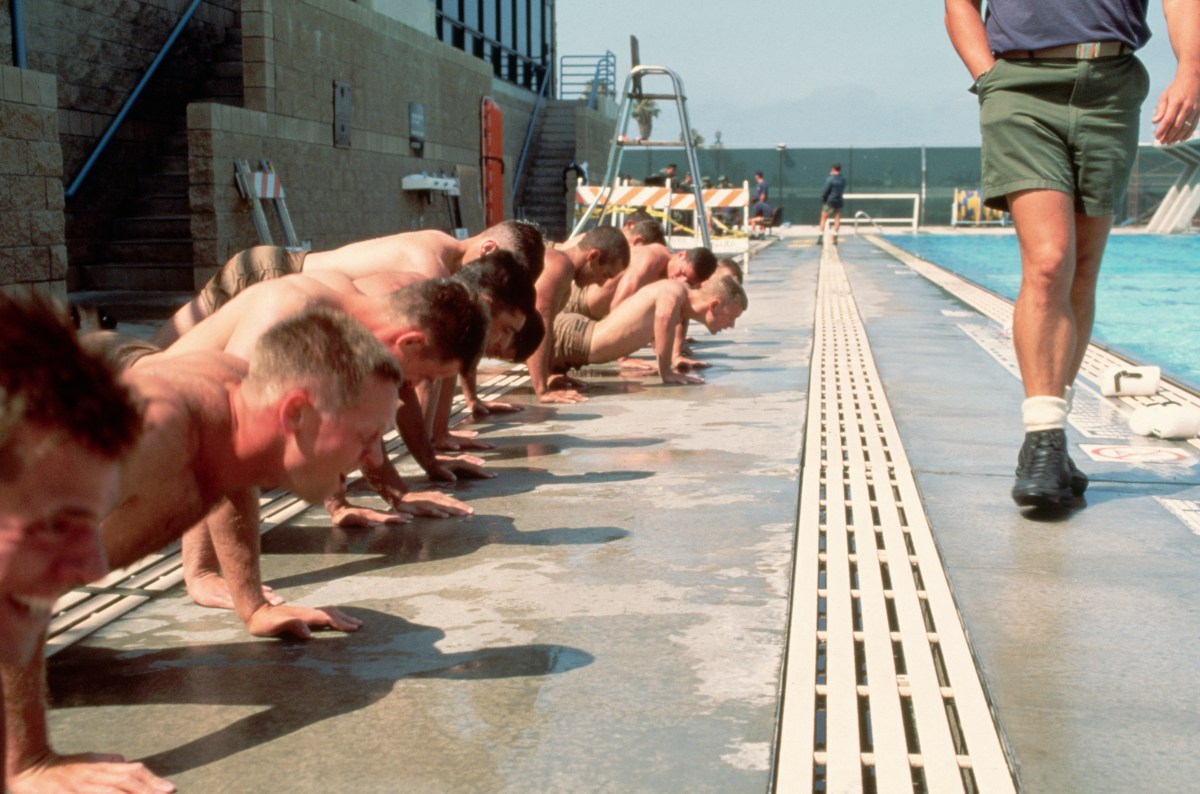A searing profile in The New York Times documents the death of Seaman Kyle Mullen, a 24-year old who showed up to Navy SEAL training this past January “in the best shape of his life.” He had been a captain of the football team at Yale, a 6’4″ stud from New Jersey, and throughout the SEALs’ notorious Hell Week, spent days battling through a bacterial infection, coughing up blood all the while. He passed the test. Then died in his barracks.
His mother is resolute on what happened, telling the Times that the SEALs killed her son. “They call it training, but it’s torture,” she said. “And then they didn’t even give them the proper medical care. They treat these guys worse than they are allowed to treat prisoners of war.”
There’s an added wrinkle to the story — when officials searched Seamen Mullen’s belongings, they found syringes and performance enhancing drugs. A subsequent investigation discovered an astonishing 40 other candidates were using steroids or other illicit drugs for an ergogenic boost.
The entire incident has raised some serious questions: How can the SEALs possibly justify a training process where halfway through Hell Week, 90% of candidates (189 of the 210 who started) have either quit or fallen to injury, and by the end of the week, a world-class athlete is dead? The old, customary answer would’ve been a rousing monologue about the importance of sifting the strong from the weak, but if those “strong” are pumping their bodies with artificial hormones in order to make it through, surely the entire process is rotten at its core?
The Navy is yet to publicly acknowledge the drug bust, but top-ranking SEALs have anonymously expressed their concern that candidates are trying to cheat their way through Hell Week with drugs that bequeath them superhuman strength and recovery times. As one succinctly summarized: ““What am I going to do with guys like that in a place like Afghanistan?A guy who can do 100 pull-ups but can’t make an ethical decision?”
Some changes have happened in-house. A few leaders were removed after Seamen Mullen’s death and going forward, all seamen will be monitored by medical personnel for at least 24 hours after they complete Hell Week.
Still, it’s hard to see any real change setting in anytime soon. Not within an institution where graduation rates have plummeted over the decades, from 40% in the 1980s, to just 10% today. Established SEALs have made the selection process harder and harder; even a year of running, swimming and lifting weights is little match for a system where candidates sleep a total of five hours in five days, and spend the rest of their time doing push-ups in the hot sand, carrying 170-pound boats over their heads and drowning in the frigid surf.
If they dare stop, or collapse, they can expect to get mocked and kicked. Hydration is nonexistent and injuries are expected, especially heatstroke, muscle tears and a condition called swimming-induced pulmonary edema (SIPE), which Seamen Mullen suffered with in the days before his death. One man, named Seamen Caserta, was dismissed from the SEALs after suffering a broken leg during training. He ended up working at a Navy snack stand to fill out the rest of his service, and in 2018, killed himself by jumping into the rotor of a Navy helicopter.
Even after Seamen Mullen’s death this year, candidates have anonymously reported that steroids are still rampant. Most agree that the test has just become too difficult to complete without them. How will the Navy choose to address an issue that’s clearly gone out of control? (Seamen Mullen was reportedly inspired to take performance enhancing drugs after talking to candidates in a recovery unit…after he first attempted the test last August.) Is there as much outrage at the top as some leaders have expressed? Or is it quietly okay with a system that rewards men willing to do whatever it takes to win?
Until (if ever) the Navy comes face to face with the barbarism of Hell Week, it’s a worthy reminder for the rest of us that we should stop fetishizing SEAL culture. There’s obviously nothing wrong with supporting SEALs who come back to public life to write memoirs or start companies. And if you’re more inclined to buy a pair of boots that are “Navy SEAL-approved,” that’s alright, too. But let’s be honest about what that moniker means. Because based on the information presented in this report — on top of decades of injuries, deaths and abuse — the institution doesn’t just “stay hard,” as David Goggins likes to say. It goes well beyond that.
Military personnel are tasked with protecting American lives, which, of course, requires sacrifices. But must that process also involve so many secrets? Should it really involve…steroids? Navy SEALs have long been associated with the absolute apex of the human will, but when so many candidates are taking drugs to make it through, isn’t it actually a battle of bodies? The bodies that break — not necessarily the brains — are the ones that get sent home. In stretchers and in coffins.
Thanks for reading InsideHook. Sign up for our daily newsletter and be in the know.



















